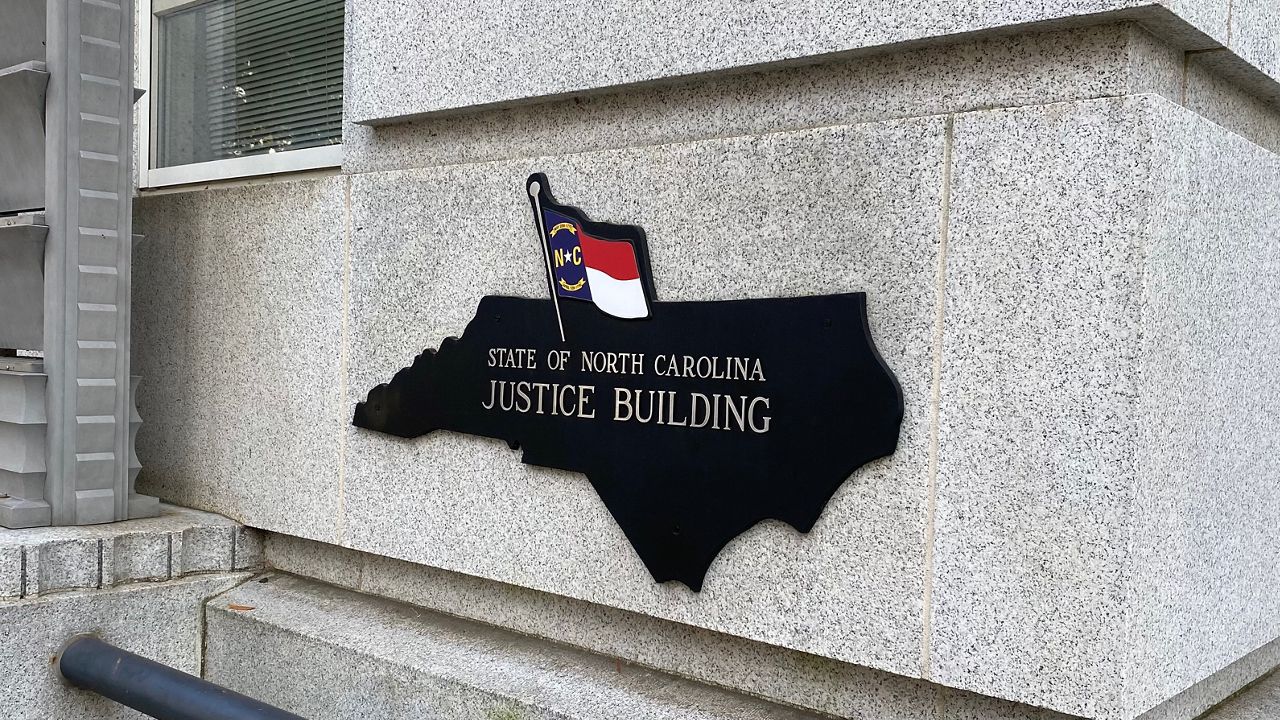Late Friday, the North Carolina Supreme Court announced it would reopen two major election cases that the previous court’s Democratic majority decided last year.
The state’s top court now has a 5-2 Republican majority. They granted requests from GOP leaders in the General Assembly to hear the cases on voter ID and redistricting again.
Rehearing a case that’s already been decided is a rare move for the court. The move underscores the partisan nature of the state’s top court, giving the new conservative majority the opening to reverse two of the biggest decisions from the justices last year.
The North Carolina Supreme Court has held new hearings in just a handful of cases, according to filings with the court. The court has reopened two cases since 1993, Justice Anita Earls writes in a dissenting opinion on the order.
“The majority’s order fails to acknowledge the radical break with 205 years of history that the decision to rehear this case represents,” Earls writes.
She said that since January 1993, there have been 214 petitions to rehear cases and two were granted.
“It has been the understood practice of this Court that rehearing is not allowed solely because a Justice may have had a change of heart after the opinion in the case has been issued or because an opinion was controversial,” she said. Rehearings have been limited to cases where there has been evidence that was not considered or “an obvious and indisputable error,” Earls said.
The petitions asking for new hearings cite four cases that the state Supreme Court decided to rehear. The decisions date from 1910 to 1987 and the cases deal with questions of corporate law, contracts, employer liability and personal injury.
The last time the Supreme Court reopened a case was with a 2006 decision in a lawsuit against the City of Durham, according to Earls.
“There, the Court granted rehearing for the limited purpose of reconsidering specific evidence in a negligence action that involved a single plaintiff, rather than to consider abolishing a constitutional right that belongs to millions of voters,” Earls wrote in a footnote to her dissent on the voter ID order.
Justice Trey Allen wrote both orders for the conservative majority on the court.
“In exercising our duty and authority to address alleged errors of law, this Court has granted rehearing,” Allen writes. “The Court observed that a recently issued opinion appropriately is reheard if the petitioner makes a satisfactory showing that the opinion may be erroneous.”
Allen was elected to the court last year as part of a new conservative majority. Two orders reopening the voter ID and redistricting cases were almost identical, citing the same cases as the reasoning behind granting the petitions.
“The people of North Carolina sent a message election day. They clearly rejected the judicial activism of the outgoing majority,” said North Carolina House Speaker Tim Moore, a Cleveland County Republican, who filed to reopen the voter ID case.
“I am committed to fighting for the rule of law and will of the voters. It’s time for voter ID to be law, as the people of North Carolina have demanded,” he said.
The political and legal debate over requiring voters to show identification has been going on for more than a decade, splitting along a predictable political divide. The Republican-led General Assembly first passed a voter ID law in 2013, but that was overturned by a federal court.
This case, Holmes v. Moore, has to do with a 2018 law. The General Assembly passed this latest voter ID law by overriding Gov. Roy Cooper’s veto on Dec. 18, 2018. Voting rights groups quickly filed a lawsuit, and voter ID has been on hold ever since.
With just two weeks left before Democrats lost control of the court last year, they issued an opinion throwing out the voter ID law.
Writing for the Democratic majority on the court in December, Earls said the voter ID laws "were formulated with an impermissible intent to discriminate against African American voters in violation of the North Carolina Constitution.”
“We hold that the three-judge panel’s findings of fact are supported by competent evidence showing that the statute was motivated by a racially discriminatory purpose,” she wrote.
Sam Hayes, General Counsel for Speaker Tim Moore said in a statement last month, “Holmes was wrongly decided based on a predetermined outcome. We now have a chance to right this wrong and deliver on voter ID, which the voters of this state overwhelmingly support.”
If the court reverses its decision, voter ID would become law in North Carolina. That would mean voters would be required to show a driver’s license or other official identification to cast a ballot in North Carolina elections.
Redistricting, the once-a-decade redraw of election districts for congress and the General Assembly, has a long and sordid political and legal history in North Carolina. This last round, which began in 2021, was no different.
The Republican-led legislature said this latest round of redistricting would be different. Instead of drawing the new maps behind closed doors, the maps were drawn using complicated software in open rooms, live streamed on the legislature’s website.
But despite the new public process, lawsuits challenged the maps as soon as they were approved by the legislature. The lawsuit, Harper v. Hall, accused the legislature of unconstitutional partisan gerrymandering, meaning the shape of the districts favored Republicans unfairly.
The legal challenges last year delayed the primary elections as the court ordered the legislators to redraw the maps. The challenge went all the way to the North Carolina Supreme Court. In the end, the courts agreed to allow redrawn maps for the General Assembly, but imposed a new map for congressional districts.
North Carolina is generally seen as a purple state, more or less evenly divided between Republican and Democratic voters. In the 2020 elections, the state went for Donald Trump in the presidential election, but also reelected Cooper, a Democrat, as governor.
In the 2022 elections, the first using the new court-approved maps, Republicans won a supermajority in the state Senate and came one seat shy in the House. With the new court-drawn map, North Carolina elected seven Democrats and seven Republicans to the U.S. House of Representatives last year.
Even with the maps settled for the 2022 elections, the legislature appealed the North Carolina Supreme Court ruling to the U.S. Supreme Court. The highest court in the nation heard oral arguments in that case late last year and is expected to rule this summer.
That case could have national implications, with legislative leaders arguing for what’s called the “independent legislature theory,” which was once considered a fringe legal theory. The argument is that the constitution gives sole authority for federal elections to state legislators, and the courts should have no role in oversight. Critics say that goes counter to the “checks and balances” built into the constitution.
So now, the redistricting case is before both the U.S. Supreme Court and the North Carolina Supreme Court.
The court set a relatively quick timeline for the new hearings, at least for a court hearing. Both cases are set for new hearings at the North Carolina Supreme Court March 14. It’s not clear when they will issue new decisions in Harper v. Hall and Homes v. Moore.






)


